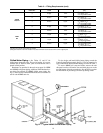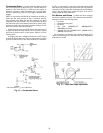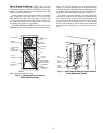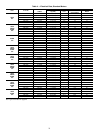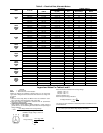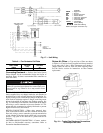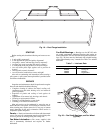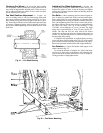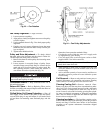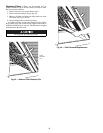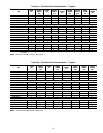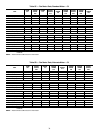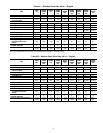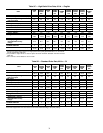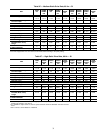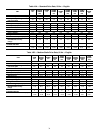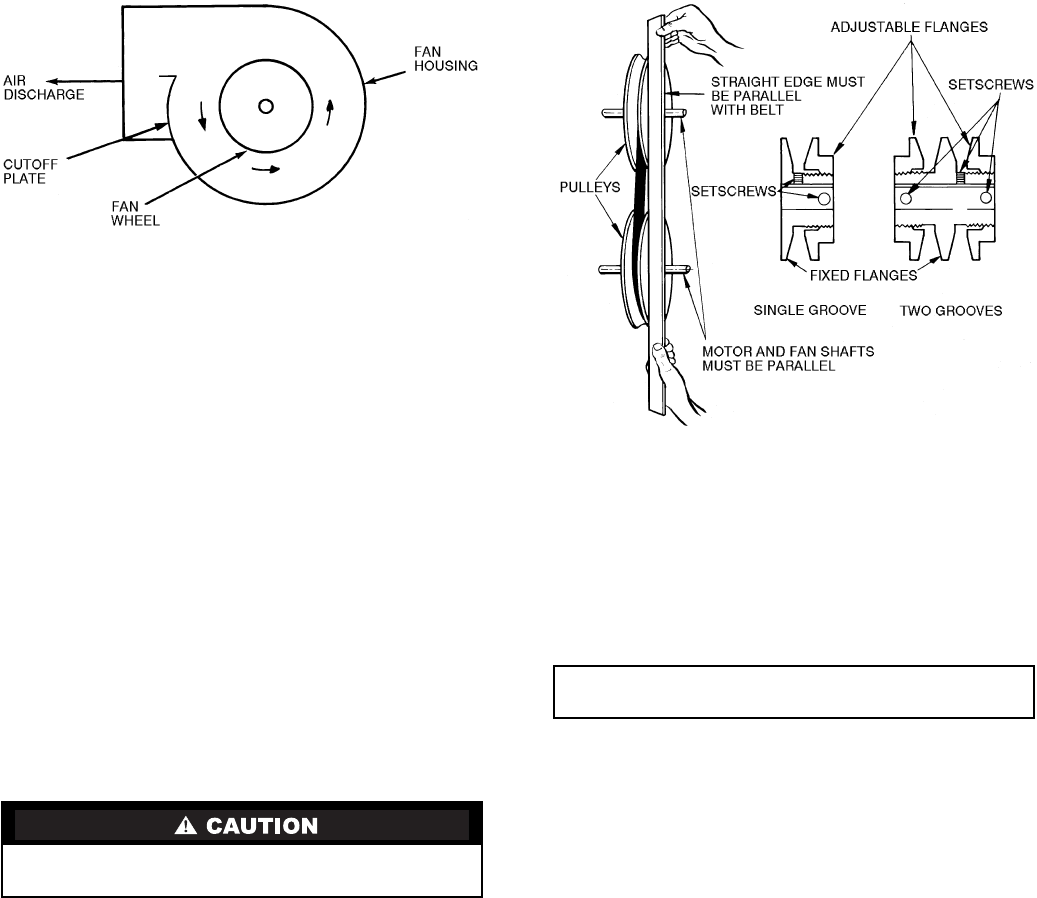
27
Fan Pulley Alignment — Align as follows:
1. Loosen setscrews on pulleys.
2. Align pulleys visually and tighten setscrews on fan pulley
to lock it in place.
3. Use the methods shown in Fig. 24 to check proper pulley
alignment.
4. If pulleys are not in correct alignment, loosen the motor
holddown bolts and slide the motor axially until the pul-
leys are aligned.
5. Tighten motor holddown bolts.
Pulley and Drive Adjustment — To obtain desired
fan speed, refer to the fan motor and drive data in Tables 8A-
11D and adjust fan motor pulley as follows:
1. Remove belt from fan motor pulley after loosening motor
from motor base.
2. Loosen setscrew in moveable flange of pulley. Screw
moveable flange toward fixed flange to increase the fan
speed and away from fixed flange to reduce speed. Be-
fore tightening setscrew, make certain that setscrew is
over nearest flat surface of pulley hub (Fig. 24).
Condensate Drains — Keep condensate drains free of
dirt and foreign matter.
Return-Air Filters — Refer to Replacing Filters section
for filter accessibility and removal. Replace with clean filters of
the sizes listed in Tables 1A-1F.
Chilled Water Coil Freeze Protection — Shut off
water supply to unit. Remove side panel of unit and remove
vent and drain plugs in top and bottom of coil header. Drain
coil and blow out remaining water. Reinstall plugs and side
panel.
Alternative freeze protection methods follow:
• Circulate hot water within the water coil’s supply main
or supplementary space heating.
• Close off supply lines to unit and open a union or field-
supplied drain valve in the return line.
• After draining as much water as possible from coils, add
sufficient antifreeze to prevent residual water in the coil
from freezing.
• Add a sufficient quantity of non-corrosive antifreeze to
the entire system to prevent all water within the system
from freezing.
Coil Removal — Remove unit panels and corner posts as
required. Disconnect coil connections and remove fastening
screws. Remove coil through end or side sections of unit.
Cleaning Cooling Coil — Remove return-air filters.
Remove any heavy dirt that may have accumulated on under-
side of coil. Coil can be cleaned more easily with a stiff brush,
vacuum cleaner, or compressed air when coil is dry. If coil is
wet or if water is to be used for cleaning, guard against splash-
ing water on electrical components or damaging surrounding
area. Clean coil baffles as applicable and check for tight fit to
be sure air does not bypass coil.
Cleaning Insulation — The insulation contains an im-
mobilized antimicrobial agent that helps prevent the growth of
bacteria and fungi. Clean the inner surface of the insulation
according to the separate maintenance instructions shipped
with the unit.
Increasing fan speed produces a greater load on motor. Do
not exceed rated capacity of motor.
IMPORTANT: Draining from return line will not com-
pletely drain water from coils.
Fig. 23 — Fan Rotation
Fig. 24 — Fan Pulley Adjustments



